第57章
Set that idea of James over against the idea which the Bible was constantly developing in the mind of the people, and you see why Trevelyan says that the Bible brought in democracy, and why he thinks, as we have already seen, that the greatest contribution England has made togovernment is its treatment of the Stuarts, when it transferred sovereignty from the king to Parliament.Among the men who listened to that kind of teaching were Eliot, Hampden, Pym, all Puritans under the spell of the Bible.But the strife grew larger than a merely Puritan one.The people themselves were strongly feeling their rights."To the devout Englishman, much as he might love his prayer-book and hate the dissenters, the core of religion was the life of family prayer and Bible study, which the Puritans had for a hundred years struggled not in vain to make the custom of the land." It was this spirit which James met.
We have already thought sufficiently of the events which actually followed.The final rupture of Charles I.with parliamentary institutions was due to the religious situation.There were many Bible-reading families, learning their own rights, while kings and favorites were plotting war.Laud and the bishops forbade non-conforming gatherings, but they could not prevent a man's gathering his household about him while he read the great stories of the Bible, in which no king ruled when he had ceased to advance his kingdom, in which each man was shut up to God in the most vital things of his life.The discussion of the time grew keen about predestination and free-will.One meant that only God had power; the other meant that men, and if men, then specially kings, might control other men if only they could.Not fully, but vaguely, the crowd understood.Very fully, and not vaguely, the leaders understood.Predestination and Parliament became a cry.That is, control lifted out of the hands of the free-will of some monarch into the hands of a sovereign God to whom every man had the same access that any other man had.Laud decreed that all such discussion should cease.He revived an old decree that no book could be printed without consent of an archbishop or the Bishop of London.So the books became secret and more virulent each year.The civil war (1642-46) between Charles and Parliament was a war of ideas.It is sometimes called a war of religion, not quite fairly.It was due to the religious situation, but actually it was for the liberties of the people against the power of the king.And that question rooted far down in another regarding the rights of men to be free in their religious life.Charles struck his coin at Oxford with the Latin inscription: "The Protestant religion; thelaws of England; the liberties of Parliament." But he struck it too late.He had been trifling with the freedom of the people, and they had learned from their fireside Bibles and from their pulpits that no man may command another in his relation to God.It was long after that Burns described "The Cottar's Saturday Night"; but he was only describing a condition which was already in vogue, and which was having tremendous influence in England as well as in Scotland:
"The cheerfu' supper done, wi' serious face, They, round the ingle, form a circle wide; The sire turns o'er, wi' patriarchal grace, The big ha' Bible, ance his father's pride: His bonnet rev'rently is laid aside, His lyart haffets wearing thin an' bare;Those strains that once did sweet in Zion glide, He wales a portion with judicious care, And 'Let us worship God!' he says, with solemn air."Under such guidance as this the people of England, Puritans and others, relaxed the power of the Stuarts and became a democracy.For democracy is not a form of government.It can exist under monarchy, provided the monarchy is a convenience of the will of the people, as it is in England.It can exist under institutions like our own, provided they also are held as a convenience of the people.This was no rebellion against some form of monarchy.It was simply a claim of every man to have his rights before God.Under the Parliament of eighteen years duration, the Independensts, Presbyterians, and all other non-conforming bodies suffered as heavily as under James and Charles, yet they did not flee the land.Their battle was really won.They believed the time would come when they as part of "the people" who now governed should assert themselves.If they were persecuted, it was under a government where yet they might hope for their rights.Fleeing from England in 1620 was heroism; fleeing in 1640 would have been cowardly.It is impossible to calculate what was the revelation to the readers of the English Bible of their rights.